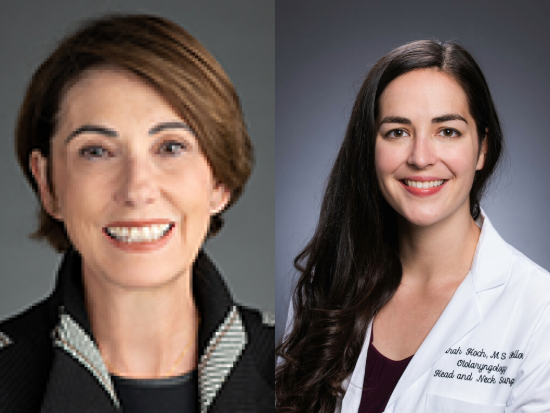 Researchers in the UAB Department of Otolaryngology recently received a five-year, $50,000 grant to support voice therapy for patients with Parkinson’s disease.
Researchers in the UAB Department of Otolaryngology recently received a five-year, $50,000 grant to support voice therapy for patients with Parkinson’s disease.
According to Edie Hapner, Ph.D., CCC-SLP, professor and co-director of the UAB Voice Center, and co-PI Sarah Hoch, CCC-SLP, speech pathologist in the UAB Voice Center, about 87 percent of people with Parkinson’s disease will develop problems with their voice, speech, and swallowing.
Several voice and speech therapies, including SPEAK OUT!, an initiative of the Parkinson Voice Project, have been shown to improve the quality of life of people with Parkinson's by delaying the progression of deficits that impair communication and swallowing.
Hapner and Hoch explain the implications of the grant and how it will help UAB otolaryngology patients.
Please explain the logistics of the grant.
The Parkinson Voice Project is a non-profit organization dedicated to providing free voice and speech therapy for people with Parkinson’s disease. The organization has selected the UAB Voice Center as the Alabama Clinical and Research Center and will award the center $50,000 over the next five years to further clinical research of their validated treatment program, SPEAK OUT! therapy.
What will this grant help support?
This grant will enable the UAB Voice Center to provide free SPEAK OUT! therapy for people with Parkinson's disease who meet eligibility requirements and support both research and teaching in the area of voice and swallowing.
Why is this work significant to researchers and patients within your department?
This grant will provide the UAB Voice Center resources that would otherwise not be available to advance clinical care for patients with Parkinson's disease.
What are your future goals as it relates to this grant?
The clinicians at the UAB Voice Center aim to collaborate with the UAB Movement Disorders team to examine the usefulness of SPEAK OUT! therapy for people with Parkinson's disease before and after the placement of a Deep Brain Stimulator. We also aim to develop a Parkinson's choir and examine the impact of singing on speech and swallowing.